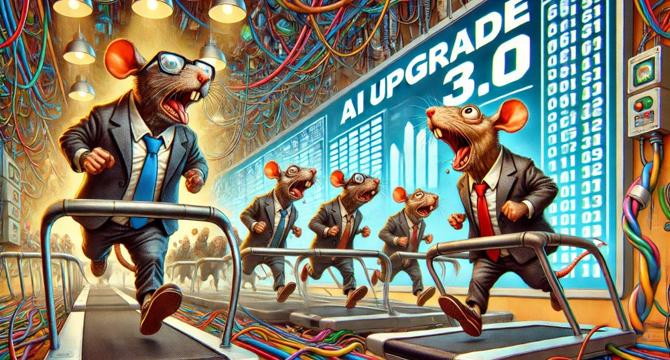Medium
2d
220

Image Credit: Medium
AI, Efficiency, and the Crisis of Purpose in the Workplace
- A study in Denmark involving 7,000 workplaces and 25,000 workers shows that AI's impact, particularly chatbots, has been barely noticeable with only 3 percent time saved and no increase in salaries or productivity.
- AI is often rushed into organizations without deep thinking on its integration, leading to technology being added without changing structures or processes.
- The focus on efficiency often overlooks the human aspect of work and its meaning, asking if AI truly makes work humane or distances people from the meaning of their labor.
- Organizations hope AI will make everything faster, but without clear direction, speed can magnify mistakes.
- Knowledge in organizations comes from human exchange and dialogue, highlighting that AI cannot replace the human process of understanding and meaning-making.
- Modern managerial logic often elevates technology while diminishing the human element of work, turning work into targets and metrics.
- Handing work processes over to machines may increase speed but risk losing the connection and meaning of work for individuals.
- Organizations need leaders who can pause, rethink, and ask deeper questions in the face of rapid AI adoption, emphasizing the importance of making clear decisions rather than quick ones.
- AI is seen as a tool that requires a clear direction and purpose, with the focus on defining where organizations want to go rather than solely on rapidly adopting technology.
- In a fast-moving world, the ability to ask important questions calmly may be the most crucial aspect of leadership.
Read Full Article
13 Likes
For uninterrupted reading, download the app